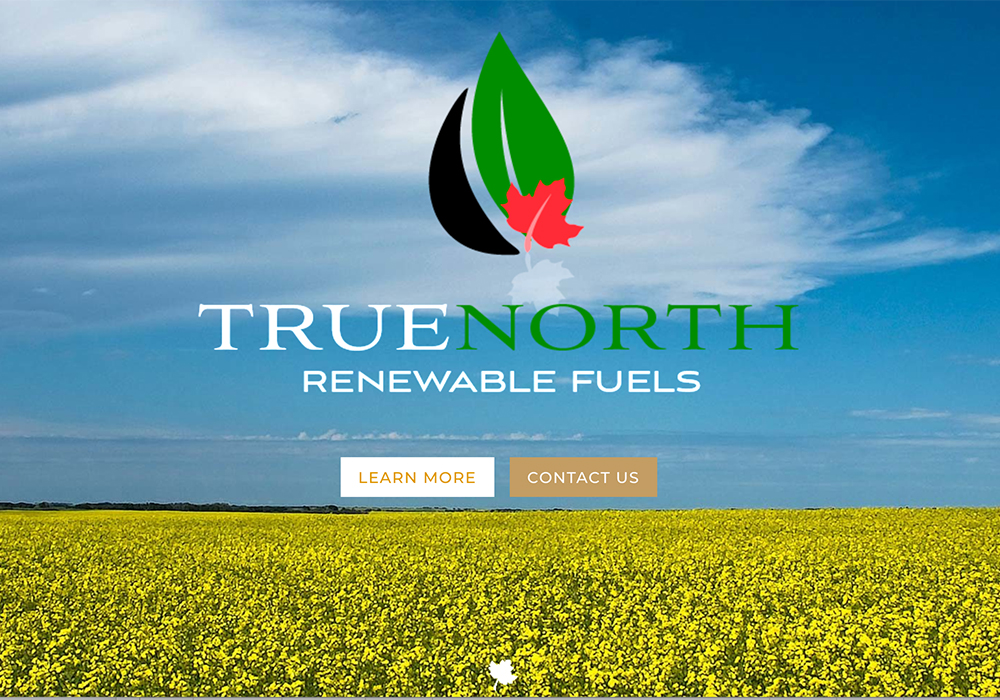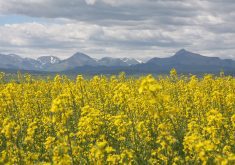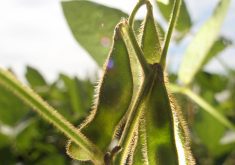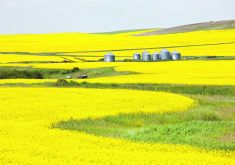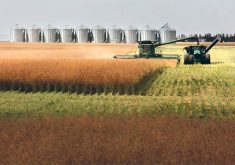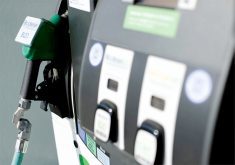A proposal to build a one billion litre renewable diesel plant on the Canadian Prairies suddenly has the legs it needs to cross the finish line, says the visionary behind the project.
Federated Co-operatives Limited has purchased the assets of True North Renewable Fuels, a Calgary energy company that recently announced its intention to build a biofuel refinery in Regina.
“In FCL, I believe we have found the right company to ensure the project comes to fruition,” True North chief executive officer Douglas Cole said in a news release.
Read Also

Farming Smarter receives financial boost from Alberta government for potato research
Farming Smarter near Lethbridge got a boost to its research equipment, thanks to the Alberta government’s increase in funding for research associations.
Bernie McClean, chair of the Saskatchewan Canola Development Commission, said the project seems more plausible now that FCL is involved.
“It gives me confidence now because they should have the financial backing to make it happen and it has got to be a win for agriculture,” he said.
SaskCanola held discussions with FCL shortly after China restricted canola imports from Canada to gauge the company’s interest in building a renewable diesel facility but FCL kept its cards close to its chest at that time.
“We were hopeful they would consider it,” said McClean.
The proposed refinery would have the ability to process up to one million tonnes of canola oil per year, which would go a long way toward replacing the lost seed sales to China.
FCL chief executive officer Scott Banda said the co-op is committed to implementing sustainable solutions to remain competitive in the fuel business.
“Energy and transportation fuel sources are going to change and this purchase demonstrates that we are positioning our co-op to meet the challenges of the changes that lie ahead,” he said in a news release.
Pam Skotnitsky, vice-president of strategy with FCL, said the co-op was already mulling over the idea of building a renewable diesel refinery.
The acquisition of True North just fast-tracked the project. True North had done a lot of front-end engineering work and relationship building.
“They were idea generators,” she said.
“We have the manufacturing expertise, the facilities, the distribution network, the retail sites and an organization that is committed to communities and loyal customers.”
She would not say how much FCL paid True North for the work it has done on the project.
FCL will be investing close to $1 billion if it decides to build a refinery of the scope proposed by True North. But it may also decide to take a modular approach and scale up capacity over time.
Skotnitsky said FCL’s 2019 purchase of the Terra Grain Fuels ethanol plant in Belle Plaine, Sask., was the gas component of the company’s renewable fuel strategy and the True North project would be the diesel component.
Regina mayor Sandra Masters said the city provided a $1 million grant for the project because it felt True North had identified an exciting biofuel opportunity for the city.
“With FCL’s acquisition of True North, we are confident the city has a prominent business partner that can take that vision from concept to reality,” she said in a news release.
Over the past number of years, we’ve been building a strategy to improve the environmental impact of our facilities and the transportation fuels we produce. Our acquisition of True North Renewable Fuels is another important step on our journey. Read more: https://t.co/A202Pdm6wv
— Federated Co-op Ltd. (@CoopFCL) April 9, 2021
Skotnitsky noted that while there would be some synergies realized by co-locating the new renewable diesel plant with its existing Co-op Refinery Complex in Regina, it is not a slam dunk that the facility will be built in Regina.
“We’re not ruling out that it would be located elsewhere and be a separate greenfield development,” she said.
One important consideration will be proximity to feedstock. The plant will be able to use a wide variety of inputs including used cooking oil, forestry waste products and straw. But the main feedstock will be canola oil.
“We will be most interested in ensuring that the canola feedstock is close to the facility,” she said.
“It’s an entire integrated play that we need to be considering here.”
McClean is wondering if the refinery will result in construction of a new crush facility. If it does, that would go a long way toward meeting the industry’s goal of having 14 million tonnes of crush capacity by 2025.
Skotnitsky said FCL is going to assess whether there is enough existing canola crush capacity available to supply the plant.
If there is, the plant would likely be built next to an existing crush plant located somewhere in the Prairie region, she said.
“If there is not, do we fill that void ourselves or in partnership with another party?” said Skotnitsky.
The timeline for the project will be the same as the one proposed by True North, which is to begin construction in the second half of 2023 and be producing fuel by 2025.
Contact sean.pratt@producer.com




